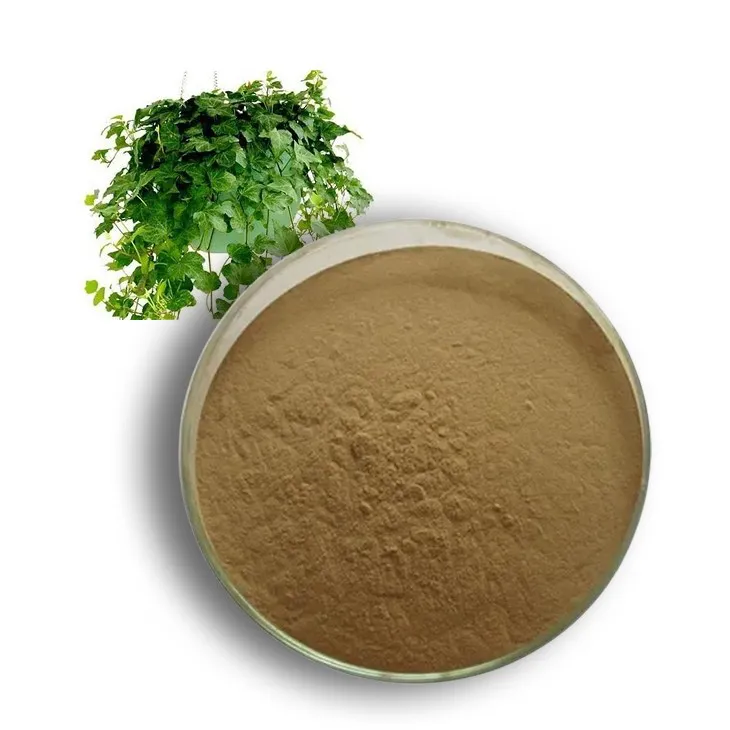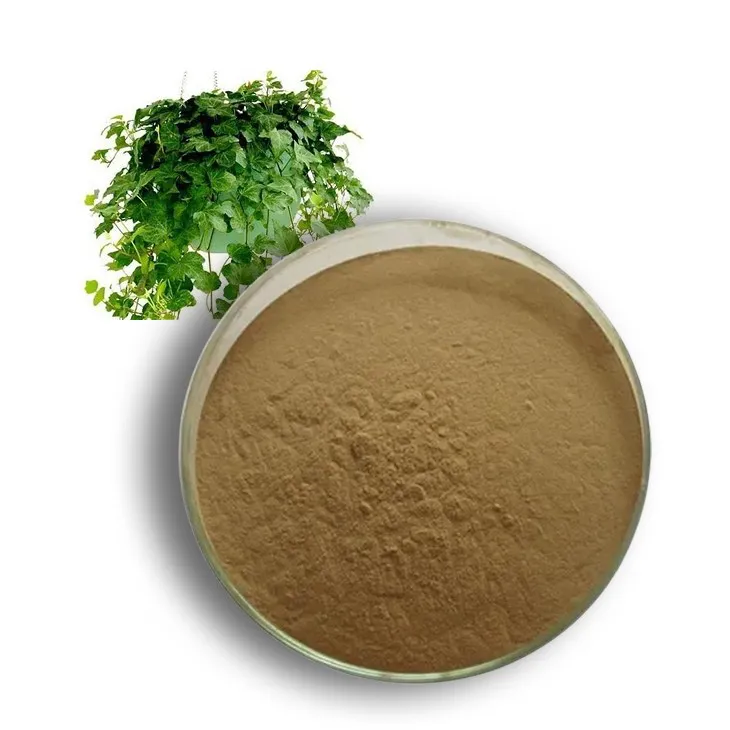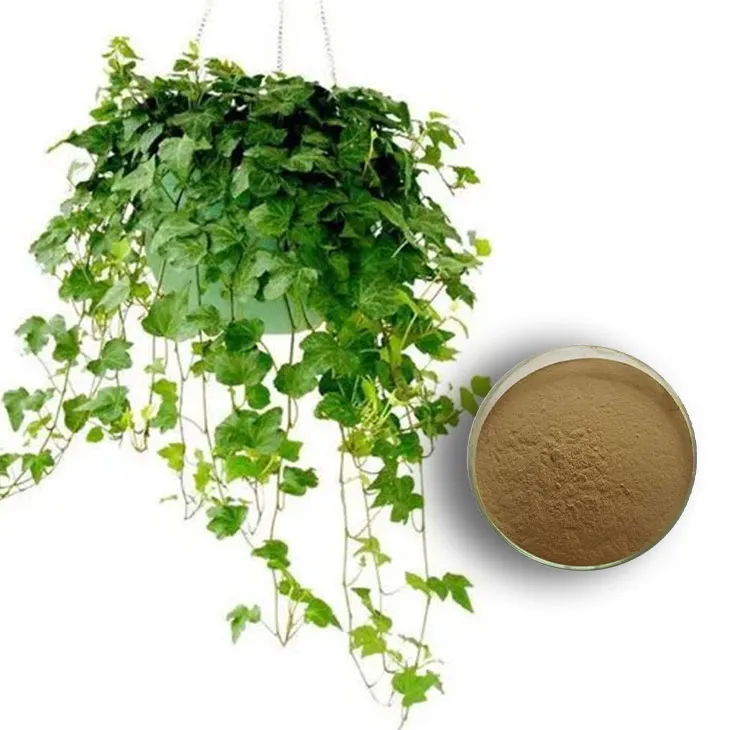- 0086-571-85302990
- sales@greenskybio.com
The Best Herbs for Treating Anxiety and Insomnia: Ivy Extract.
2024-11-12

1. Introduction to Ivy Extract in Traditional Medicine
Ivy has a long - standing history in traditional medicine across different cultures. In ancient times, it was often used for a variety of ailments. The use of Ivy Extract dates back centuries, and it was valued for its potential healing properties. Traditional healers recognized its power in treating respiratory problems, skin disorders, and also had an inkling of its possible effects on the nervous system. The knowledge about Ivy Extract has been passed down through generations, and with the modern interest in natural remedies, it is now being re - examined more closely for its role in treating anxiety and insomnia.

2. The Bioactive Components of Ivy Extract
Ivy extract contains several bioactive components that are thought to contribute to its potential in treating anxiety and insomnia. Saponins are one of the main components. These substances have been shown to have anti - inflammatory and antioxidant properties in some studies. Another important group of components are the flavonoids. Flavonoids are known for their ability to interact with the body's cells and may play a role in modulating neurotransmitter activity. Additionally, ivy extract may also contain alkaloids, which could potentially affect the central nervous system in ways that are beneficial for reducing anxiety and promoting sleep.

3. Research Findings on Ivy Extract for Anxiety
3.1 Animal Studies
In animal studies, ivy extract has shown some promising results in relation to anxiety. For example, in a study on rats, those given ivy extract over a period of time exhibited less anxious behavior compared to the control group. The rats in the treatment group were more likely to explore open areas in an experimental maze, which is an indication of reduced anxiety. This was hypothesized to be due to the interaction of the bioactive components in the ivy extract with the rats' neurotransmitter systems, specifically those related to the regulation of stress and anxiety responses.3.2 Human Studies
In human studies, the results are a bit more complex. Some small - scale clinical trials have suggested that ivy extract may have a mild anxiolytic effect. Participants who took ivy extract supplements reported feeling less stressed and more at ease. However, more large - scale and long - term studies are needed to confirm these initial findings. One of the challenges in human studies is controlling for other factors that could influence anxiety levels, such as diet, lifestyle, and pre - existing mental health conditions.
4. Research Findings on Ivy Extract for Insomnia
4.1 Mechanisms of Action
Ivy extract may promote sleep through several mechanisms. One possible way is by reducing the activity of the sympathetic nervous system. When the sympathetic nervous system is overactive, it can interfere with the normal sleep - wake cycle. The bioactive components in ivy extract may help to calm this overactivity, thus making it easier for a person to fall asleep. Another mechanism could be related to its potential effect on the production of certain hormones. For example, it may influence the levels of melatonin, a hormone that regulates sleep - wake cycles.4.2 Clinical Evidence
There is some clinical evidence to support the use of ivy extract for insomnia. In a small study of individuals with mild to moderate insomnia, those who took ivy extract for a few weeks reported an improvement in their sleep quality. They had shorter sleep onset latency (the time it takes to fall asleep) and longer total sleep time. However, as with the research on anxiety, larger and more comprehensive studies are required to establish its efficacy more firmly.5. Comparison with Other Remedies
5.1 Herbal Remedies
When compared to other herbal remedies for anxiety and insomnia, ivy extract has its own unique characteristics. For example, compared to valerian root, which is a well - known herbal sleep aid, ivy extract may have a different mechanism of action. Valerian root is thought to work mainly by increasing the levels of gamma - aminobutyric acid (GABA) in the brain, while ivy extract's effects seem to be more related to modulating the nervous system's overall activity. Another herbal remedy, chamomile, is often used for its calming properties. While chamomile is mainly consumed as a tea, ivy extract is more commonly available in supplement form.5.2 Pharmaceutical Remedies
In comparison to pharmaceutical medications for anxiety and insomnia, ivy extract offers some potential advantages. Pharmaceutical drugs for anxiety, such as benzodiazepines, can have significant side effects, including drowsiness, dizziness, and potential for dependence. Ivy extract, on the other hand, has so far shown relatively mild side effects in the studies conducted. For insomnia medications like zolpidem, there are concerns about rebound insomnia when the drug is discontinued. Ivy extract may not pose such a risk, although more research is needed. However, it should be noted that pharmaceutical medications are often more rigorously tested and have more established dosages and treatment regimens.6. Integrating Ivy Extract into a Holistic Approach
6.1 Diet and Nutrition
Incorporating ivy extract into a holistic approach for managing anxiety and insomnia also involves considering diet and nutrition. A diet rich in fruits, vegetables, whole grains, and lean proteins can complement the effects of ivy extract. For example, foods high in magnesium, such as nuts and leafy greens, can help relax the muscles and may enhance the calming effect of ivy extract. Also, avoiding excessive caffeine and alcohol is crucial, as these substances can interfere with sleep and may exacerbate anxiety.6.2 Exercise and Stress Management
Regular exercise is another important aspect of a holistic approach. Exercise helps to reduce stress hormones and promotes the release of endorphins, which can improve mood. Combining exercise with the use of ivy extract may have a synergistic effect in reducing anxiety. Stress management techniques such as meditation, deep breathing exercises, and yoga can also be beneficial. These practices can help to calm the mind and make the body more receptive to the effects of ivy extract.6.3 Sleep Hygiene
Good sleep hygiene is essential when using ivy extract for insomnia. This includes maintaining a regular sleep schedule, creating a comfortable sleep environment, and avoiding electronic devices before bedtime. By following these sleep hygiene practices along with taking ivy extract, the chances of improving sleep quality are increased.7. Precautions and Side Effects
While ivy extract is generally considered safe, there are some precautions to be aware of. Allergic reactions can occur in some individuals, especially those who are allergic to plants in the ivy family. Symptoms of an allergic reaction may include skin rashes, itching, and in severe cases, difficulty breathing. Additionally, some people may experience mild gastrointestinal side effects such as nausea or stomach upset when taking ivy extract. It is important to start with a low dose when using ivy extract for the first time and to monitor for any adverse reactions. Pregnant and breastfeeding women should also avoid using ivy extract until more research is done on its safety in these populations.
8. Conclusion
Ivy extract shows potential as a natural remedy for anxiety and insomnia. The research findings so far, although not conclusive, are encouraging. Its bioactive components offer possible mechanisms for its effects on the nervous system. When compared to other remedies, it has unique features that may make it a valuable addition to the treatment options. However, more research is needed, especially large - scale and long - term studies, to fully understand its efficacy and safety. Incorporating ivy extract into a holistic approach that includes diet, exercise, and stress management can be a promising way to manage anxiety and insomnia for those interested in alternative therapies for mental and sleep health.
FAQ:
What are the bioactive components in ivy extract that help with anxiety and insomnia?
The specific bioactive components in ivy extract that contribute to its potential in treating anxiety and insomnia are still being studied. However, it is believed that certain compounds within it may have properties that can influence neurotransmitters or physiological processes related to relaxation and stress reduction. For example, some components might interact with the body's systems in a way that calms the nervous system, which in turn can help with the symptoms of anxiety and insomnia.
How does ivy extract compare to traditional medications for anxiety and insomnia?
Ivy extract, as a natural remedy, may have different mechanisms of action compared to traditional medications. Traditional medications often target specific receptors or neurotransmitters in a more direct way. Ivy extract, on the other hand, may work through a more complex and holistic set of interactions within the body. While traditional medications can be very effective, they may also come with side effects. Ivy extract may potentially offer a more natural alternative with fewer side effects, but its efficacy may not be as immediately potent or consistent as some pharmaceutical drugs. Research is still ongoing to better understand these differences.
Can ivy extract be used safely?
When used properly, ivy extract is generally considered safe for most people. However, like any supplement, there can be potential risks. Some individuals may be allergic to ivy or its components, which could lead to adverse reactions. It is also important to follow recommended dosages, as excessive intake could potentially cause problems. Pregnant or breastfeeding women, as well as those with certain medical conditions or taking other medications, should consult a healthcare provider before using ivy extract to ensure its safety.
How is ivy extract integrated into a holistic approach for anxiety and insomnia?
As part of a holistic approach, ivy extract can be combined with other lifestyle changes. For example, it can be used in conjunction with relaxation techniques such as meditation or yoga. A balanced diet, regular exercise, and maintaining a consistent sleep schedule are also important aspects of a holistic approach. Ivy extract may enhance the overall relaxation and stress - reduction effects when paired with these healthy lifestyle habits. Additionally, it can be considered as part of a broader natural remedy regimen that might include other herbs or supplements known for their calming properties.
What are the current research findings on the efficacy of ivy extract for anxiety and insomnia?
Current research on ivy extract for anxiety and insomnia shows some promising results. Some studies have indicated that it may have a positive impact on reducing anxiety symptoms and improving sleep quality. However, more research is needed to establish its efficacy definitively. The research is often focused on understanding how the bioactive components interact with the body's systems related to anxiety and sleep regulation. So far, the evidence is not as comprehensive as that for some well - established medications, but it is an area of growing interest in the field of natural remedies.
Related literature
- The Potential of Ivy Extract in Herbal Medicine for Anxiety Disorders"
- "Ivy Extract and Sleep: A Review of Current Research"
- "Comparative Study of Ivy Extract and Pharmaceutical Treatments for Insomnia"
- ▶ Hesperidin
- ▶ Citrus Bioflavonoids
- ▶ Plant Extract
- ▶ lycopene
- ▶ Diosmin
- ▶ Grape seed extract
- ▶ Sea buckthorn Juice Powder
- ▶ Fruit Juice Powder
- ▶ Hops Extract
- ▶ Artichoke Extract
- ▶ Mushroom extract
- ▶ Astaxanthin
- ▶ Green Tea Extract
- ▶ Curcumin
- ▶ Horse Chestnut Extract
- ▶ Other Product
- ▶ Boswellia Serrata Extract
- ▶ Resveratrol
- ▶ Marigold Extract
- ▶ Grape Leaf Extract
- ▶ New Product
- ▶ Aminolevulinic acid
- ▶ Cranberry Extract
- ▶ Red Yeast Rice
- ▶ Red Wine Extract
-
Honeysuckle Pollen
2024-11-12
-
Propolis Extract Powder
2024-11-12
-
Yam Extract
2024-11-12
-
Lycopene
2024-11-12
-
White Willow Bark Extract
2024-11-12
-
Cocoa Extract
2024-11-12
-
Andrographis Paniculata Extract Powder
2024-11-12
-
Longan Extract
2024-11-12
-
Lotus leaf extract
2024-11-12
-
Bilberry Extract
2024-11-12





















